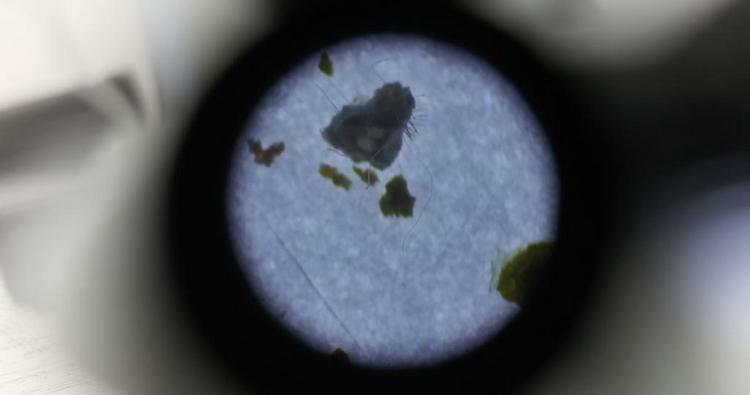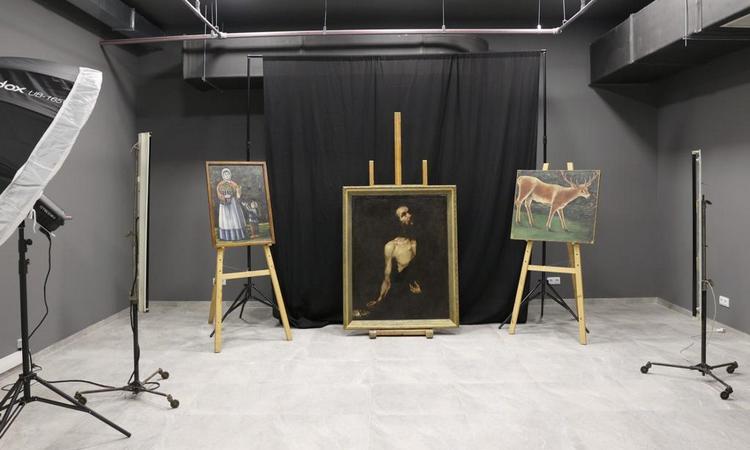South Caucasus' first state lab for artwork study unveiled at Tbilisi museum

Equipped with high-resolution cameras, scanning hardware and more, the laboratory will be used to aid verification of authenticity of artwork, research, dating and attribution. Photo via Ministry of Culture, Sport and Youth of Georgia
Tbilisi's Shalva Amiranashvili Museum of Fine Art now boasts the first state laboratory for examination of artwork in the South Caucasus region, after the modern lab was launched at the venue on Thursday.
Named after Irakli Parjiani, the country's celebrated 20th century artist, the facility was developed in collaboration between the Culture Ministry and the Foundation in the name of the late creative, and will be used to host "complex expert research" on artwork and establish their authenticity, the state body said.
For the purpose, the lab has been equipped with hardware including an infrared spectroscope as well as electronic, optical, stereo, polar and binocular microscopes.

The facility will be used to collect samples from works by celebrated Georgian artists to create a database required for its further work. Photo via Ministry of Culture, Sport and Youth of Georgia
It also has high-resolution photo cameras, devices for ultraviolet fluorescence, an infrared camera, X-ray hardware, a chemical laboratory, a three-dimensional scanner and a photo scanner.
The Ministry said the facility - plans for which were initially raised in 2021 and then discussed by officials in February of this year - would help ensure protection of copyright, improve scientific and restoration works at the Museum, as well as attribution and dating of artwork.
To combine the launch of the laboratory with qualifications for professional work with its capabilities, art critics, chemical restoration experts and X-ray professionals were retrained late last year to use the hardware available at the facility and produce reports.
In the next step in its operation, the lab will be used to collect microscopic samples from works by painters like Georgia's internationally recognised primitivist artist Niko Pirosmani, to create a technological database required for its operation.
 Tweet
Tweet  Share
Share